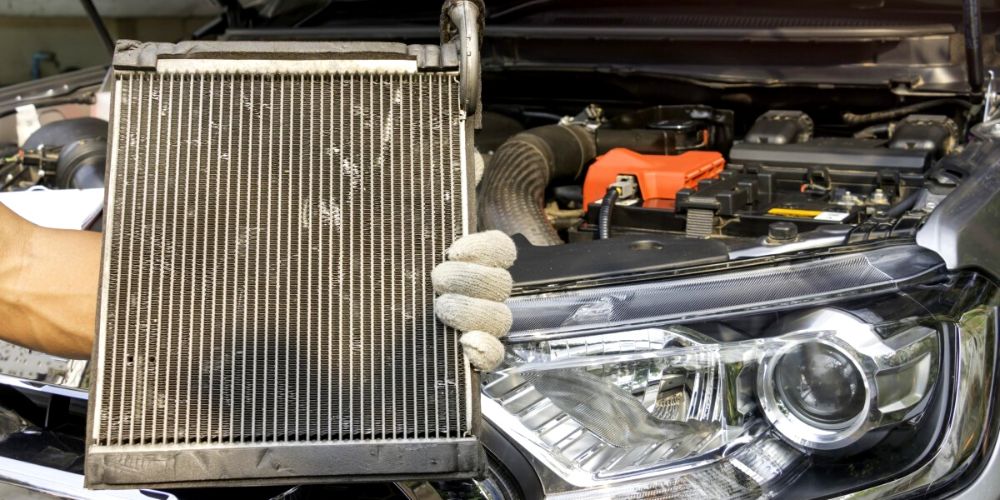Engines often tend to heat after a prolonged use of the car. Every time you go on a long ride, you would notice the engine becomes heated, isn’t it? It is the radiator which controls the heating of the engine with the help of coolant. It can be concluded that the radiator is one of the critical components of the engine as it performs a crucial role of controlling the heat inside the engine box. Let’s understand more about it and its functions!
What Is A Radiator In A Car?
Radiator’s main job is to cool down the engine and thus it becomes critical to keep the radiator in good condition. Generally, the coolant is inside the tank of the radiator and from there it travels through the core. With the help of the fan, it further flows through tubes to cool the engine down.
How Does A Radiator Work?
Radiators in the car work primarily to eliminate heat from the engine and its chamber. The process starts as soon as the thermostat detects excess heat. That’s when the coolant and water get released automatically from the radiator and flow towards the engine to absorb this excess heat and to cool the engine down.
Radiators work on the heat transfer principle called convection. So when the water inside the radiator chamber is heated, the surrounding air also heats and further flows around the pipes as the air circulates.
Signs You Have A Bad Or Failing Radiator
There are plenty of tell tale signs to know if you are a failing or under performing radiator. Some of the crucial signs are as follows:
Vehicle Is Overheating
One of the first and the foremost signs of a malfunctioning radiator is the overheating of the engine. Every time the engine gets heated, it should ring a bell that there may be something wrong with the radiator.
Vehicle Is Leaking Coolant
Another crucial sign behind a failing or poor radiator is the leaking of coolant. Functioning of coolants is directly linked with the radiator. Hence if there is anything wrong with the radiator, coolant may not flow through the pipes of the engine box.
Sludge Build Up In Radiator
With regular use, there is likelihood of sludge build up in the radiator or its passage. You should get the car regularly serviced to ensure all the components are working smoothly. Any such build is an indicator that there is something not right with the radiator.
Low Coolant Levels
Check the level of the coolant after a regular interval. Low coolant level can be a sign that the radiator is not functioning well and it could result in overheating of the engine.
5 Tips To Maintain Your Car’s Radiator
You can always follow some best practice and expert recommended tips to keep your car’s radiator healthy and running.
Perform Regular Radiator Checks
You should get your car regularly serviced as recommended by the auto expert. Make sure you perform regular radiator checks to see if it is working effectively or not. You can then take necessary actions to replace or repair the components. This would ensure there are no last-minute hiccups and you can enjoy your ride seamlessly.
Avoid Overloading Car
We often make the mistake of overloading the car which can cause problems when it comes to the performance of the radiator and the engine. Make sure you avoid overloading it as much as possible.
Top Up With Engine Coolant
Top up the coolant after every 20000 to 25000 miles or as recommended by the service engineer. It varies from car to car depending upon the use and driving habits.
Check Your Fluids
Regularly check the fluid levels and take corrective actions. Make sure the level of coolant is appropriate and check the oil levels too. Low levels of fluid can create problems in the long term and impact the performance of your car.
Maintain The Hoses And Check For Leaks
Keep an eye on all the key components of the engine including the hoses and pipes. Look for any potential leaks from the pipe and engine box. Get the car serviced and checked by an expert as soon as you find any unusual sign.


